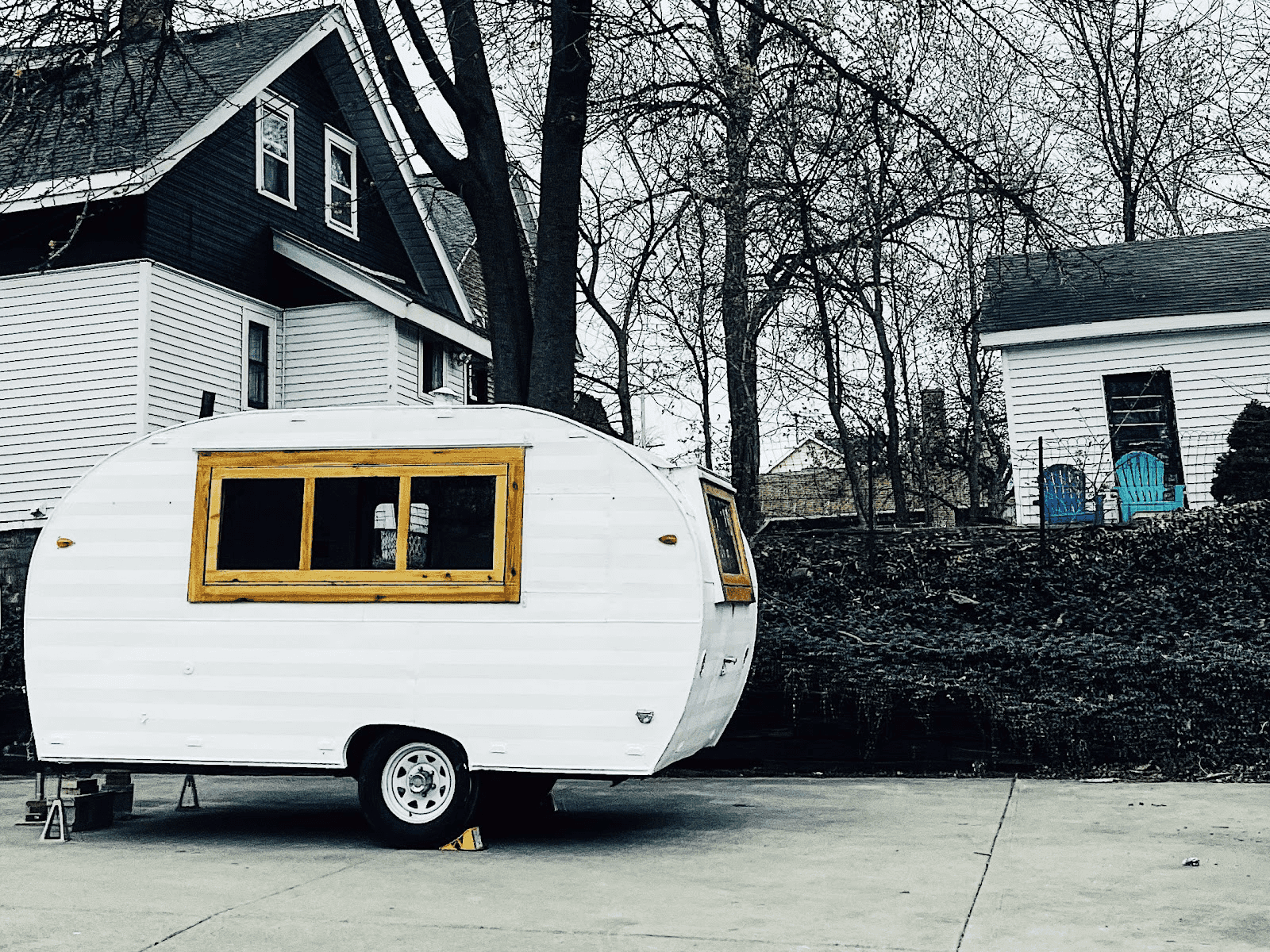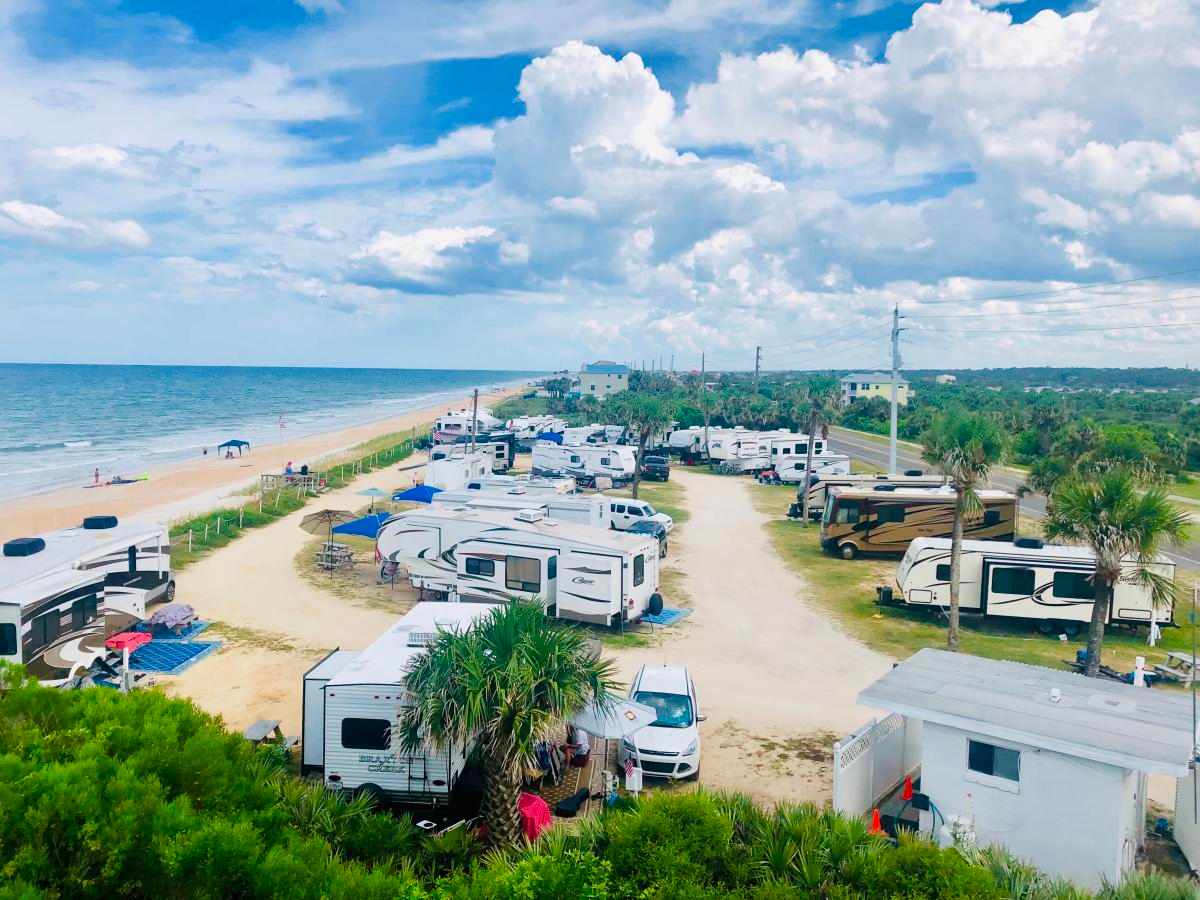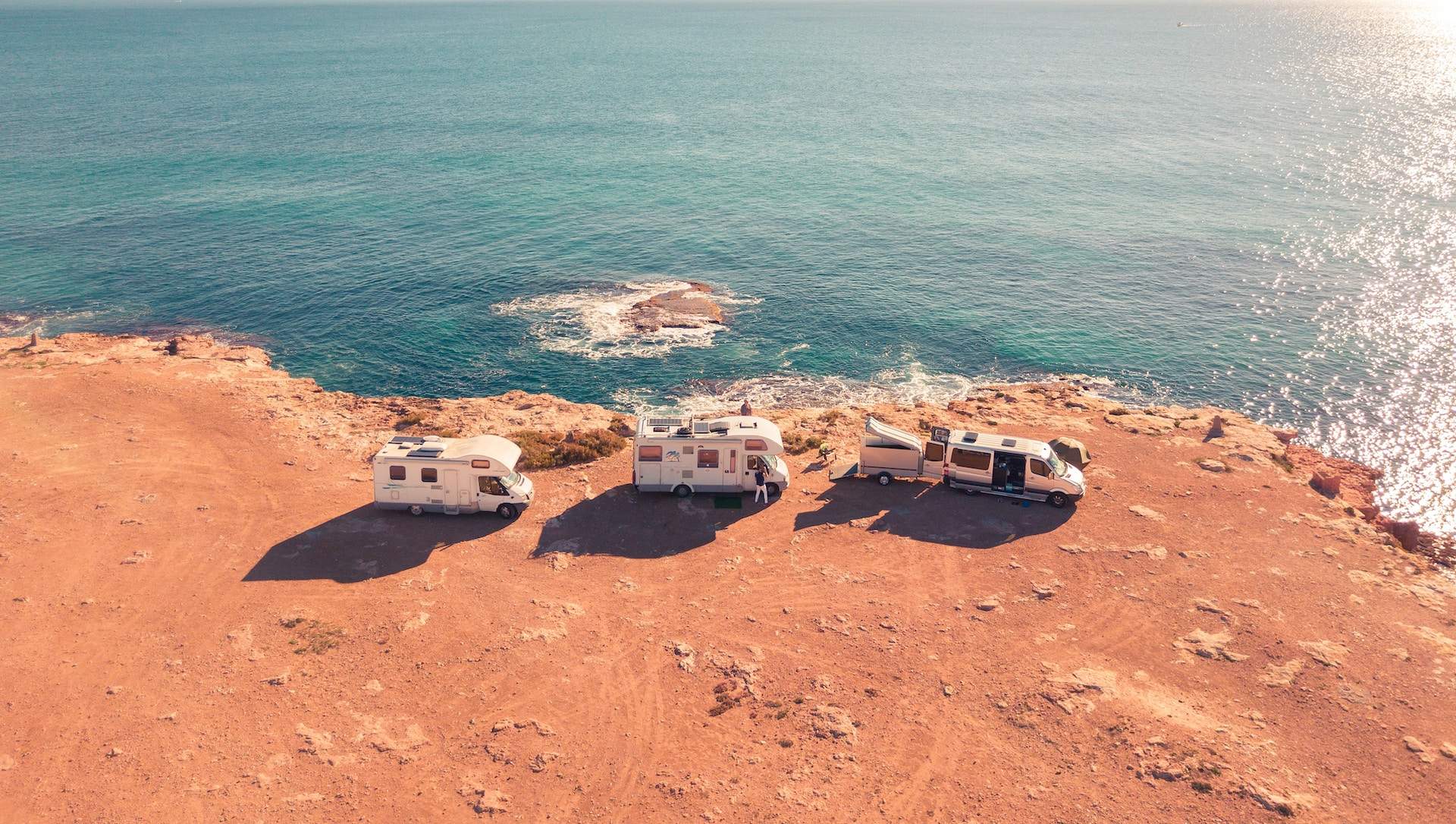The Variety of RV Sizes and Their Implications
RVs are available in various sizes, each designed to cater to different travel needs and preferences. Choosing between small and large RVs is a big task. Small RVs, like campervans and travel trailers, offer ease of use and flexibility. Large RVs, including fifth wheels and class A motorhomes, provide expansive living areas and comprehensive amenities.
The average travel trailer stands at around 11.5 feet tall, offering a balance between utility and accessibility. Fifth wheels are generally taller, potentially limiting access to certain destinations due to their height.
Let’s dig into ways you can decide between these trailer types.
Try Before You Buy: RVs For Rent Near You
Financial Considerations in RV Ownership
The cost of owning an RV varies widely depending on the size and type. Small travel trailers are relatively affordable, with new models typically ranging from $8,000 to $23,000. On the other hand, larger RVs come with a heftier price tag. Towable RVs can cost anywhere from $14,000 to over $150,000, and motorhomes can reach prices from $80,000 to more than $750,000 for top-of-the-line models.

Maneuverability and Accessibility Concerns
Destination Compatibility
The size of your RV can dictate where you can travel. Smaller RVs can venture into more secluded campgrounds and areas not designed for larger vehicles. Large RVs may require additional planning to ensure they fit within the size constraints of specific campsites, potentially limiting your travel options.
Driving and Parking Challenges
Small RVs are often easier to drive and park, especially in tight spots or heavy traffic. Their compact size allows for smoother navigation on winding roads and easier access to camping sites. Larger RVs offer more space but can be cumbersome to maneuver and may be restricted by weight limits on certain roads.
Evaluating Cost-Effectiveness
Upfront and Ongoing Expenses
Smaller RVs typically have lower initial purchase prices and maintenance costs. The simpler systems found in smaller RVs can lead to fewer mechanical issues, potentially saving money over time. For larger RVs, the complexity of their systems and components can result in higher maintenance expenses.
Fuel Efficiency and Budgeting
Fuel efficiency is a significant factor in the overall cost of RV travel. Large RVs, particularly class A motorhomes, average around 10 miles per gallon, whereas towing a trailer is usually more fuel-efficient. These fuel consumption rates can have a notable impact on your travel budget over the long term.
Choosing the right RV for your adventures requires careful consideration of size, cost, maneuverability, and the types of destinations you wish to explore. While larger RVs offer more comfort and amenities, smaller RVs are generally more economical and can access a broader range of locations. Your decision should align with your travel style and the experiences you seek on the open road.
Living Space and Amenities
Adaptability for Lifestyle
Your lifestyle plays a critical role in selecting the appropriate RV size. If you prefer to stay in one location for lengthy periods, a large RV might offer the domestic comforts and amenities you’re accustomed to. Conversely, if you’re drawn to frequent relocations and exploring a range of environments, the nimbleness of a small RV could be greatly beneficial. The key is finding a balance—comfort against convenience, space against simplicity.

Comfort and Luxury
The living space and amenities are where large RVs excel in comparison to their smaller counterparts. Fifth-wheel trailers often feature interiors akin to residential homes with full-size appliances, expansive living areas, and occasionally multiple bedrooms or a dedicated office space. On the flip side, travel trailers provide more modest lodgings, generally with less space and fewer opulent features. When choosing between RVs, it’s important to weigh your personal comfort needs against the type of experience you’re seeking.
Practical Considerations for RV Owners
Towing Requirements
One practical aspect that demands attention is the towing requirement. Small RVs can be towed by a broad array of vehicles, including some sedans, SUVs, and trucks. This flexibility indicates you don’t need a heavy-duty towing vehicle, which can save costs. In contrast, large RVs necessitate more robust towing vehicles, often requiring the purchase of a heavy-duty truck with the appropriate hitching mechanism and braking systems.
Learning Curve and Safety
New RV owners should note the learning curve associated with operating and maintaining an RV. As recommended by Nationwide, practice parking and turning your RV in a secure, open space soon after acquisition. This advice is especially pertinent for large RVs, which demand a more comprehensive understanding of vehicle dynamics. Safety is crucial, and dedicating time to become familiar with the RV’s size and handling can prevent mishaps and heighten the enjoyment of the experience.
Making the Right Choice for You
Assessing Your Travel Needs
To choose correctly between RVs, assessing your travel needs is essential. Think about how often you’ll travel, the types of destinations you’re interested in, and the comfort level you require. Each RV size offers distinct benefits, and matching these with your travel goals is key to a satisfying RV lifestyle.
Pros and Cons Summary
Let’s recap the advantages and disadvantages of small and large RVs:
- Small RVs:
- Simpler to maneuver and park
- Access to a broader range of locations
- Lower upfront and upkeep costs
- Can be towed by various vehicles
- Simpler to maneuver and park
- Large RVs:
- Increased living space and luxurious amenities
- More suitable for long-term stays
- Needs a heavy-duty towing vehicle
- Greater fuel consumption
- Increased living space and luxurious amenities
Choosing between a small or large RV is a personal decision, shaped by individual travel habits and preferences. While small RVs offer flexibility and cost-efficiency, large RVs provide ample comfort and amenities similar to a home.
Ultimately, the optimal RV for you is the one that aligns with your travel requirements, fits within your budget, and delivers the level of comfort you wish for while venturing into nature. The open road beckons with limitless opportunities and adventures, whether it’s with a cozy travel trailer or a capacious fifth wheel. Enjoy your travels, and may each mile present a fresh discovery and a treasured moment in your RV journey.








